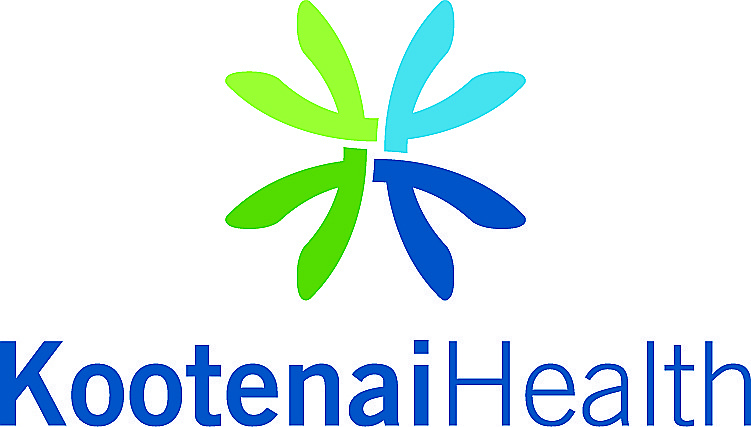Kootenai Health trustees contemplate nonprofit conversion
COEUR d’ALENE — Kootenai Health trustees met Tuesday to discuss whether the hospital district should transition from being government-owned to a nonprofit organization.
The group examined a white paper released last week by Kootenai Health, which outlines the benefits, drawbacks and considerations for transition to a 501(c)3. The white paper is available at KH.org/501c3.
Kootenai Health has been a hospital district since 1956. By converting to a nonprofit, it would give up its taxing authority, sovereign immunity and power of eminent domain.
Kootenai Health has not exercised its taxing authority since 1995. Even if it did, Kootenai Health CEO Jon Ness said the amount of tax revenue that the hospital district could take in would be a pittance compared to today’s expenses.
“It’s not material enough to help Kootenai Health in any substantial way,” he said.
Kootenai Health has never utilized its right to eminent domain, which allows the hospital to take private property for public use for appropriate compensation.
Steve Matheson, who is both a Kootenai Hospital District trustee and Kootenai County treasurer, said he believes the timeline is too fast, with trustees asked to vote less than two weeks after the white paper was published.
“I think the conversation that we’re having might lead us to that ultimate decision,” he said. “However, I don’t believe we need to rush through this decision.”
Matheson has called for the matter to be put to a public vote.
“In 1956, the community was asked to establish the hospital district,” he said. “I believe strongly that we are ethically obligated to ask the community for permission to terminate that district.”
However, the law only provides for a public vote in the event that a hospital district is to be sold to a private entity. Only a hospital district’s trustees, who were elected by county residents, can make the decision to convert to a nonprofit.
Additionally, if a hospital conveyed to a nonprofit corporation ceases to be used as a nonprofit hospital, it reverts to the ownership of the hospital district.
That means it’s impossible for Kootenai Health to be purchased by a for-profit entity if it becomes a nonprofit.
The nonprofit model provides certain benefits, according to the white paper, such as enhanced access to capital and diversified investment opportunities prohibited by the hospital district structure. Potential partners who might hesitate to work with a government entity might be more inclined to align with Kootenai Health as a nonprofit.
Liz Godbehere, a trustee and registered nurse, said Kootenai Health is her home hospital. Her children were born there. Her first day working at Kootenai Health was Sept. 11, 2001.
Godbehere said she couldn’t have anticipated back then what a huge part of her life the hospital would become or what changes it would undergo in the next two decades.
“We don’t make this decision lightly,” she said.
As a nurse, Godbehere said she’s focused on the impact on Kootenai Health’s frontline staff.
Ness said the conversion would be unlikely to affect the day-to-day experiences of staff.
“I don’t anticipate any direct impact or change,” he said.
Trustee Teri Farr, who has worked for Kootenai Health for more than 20 years, said she believes the move would increase stability and continuity for staff.
“They also need to be assured that they’re not going to be affected by political whims based on an election cycle,” she said.
In Idaho, hospital districts have “complete protection against collective bargaining and unionization,” Ness said.
If the hospital district converts to a nonprofit, Kootenai Health will be subject to compliance with the National Labor Relations Act, which guarantees the right of private-sector employees to organize into trade unions, engage in collective bargaining and take collective action, such as strikes.
“It opens up Kootenai Health to the possibility of union activity, which is not necessarily by itself a bad thing,” Ness said. “It’s just a different approach. But it could create a situation we’ve never had with Kootenai Health.”
Robert Colvin, who is an appointed trustee and thus won’t cast a vote, said the hospital district model is “close to obsolete” for hospitals the size of Kootenai Health.
Nationwide, only about 20 large hospitals with more than 300 beds are hospital districts. There are only two in the Pacific Northwest: Kootenai Health and Evergreen Health in Kirkland, Wash., which generates around $28 million in tax revenue.
The tradeoff of public meetings in exchange for tax revenue still works for small, rural hospitals, Colvin said.
But it no longer makes sense for Kootenai Health, which exists in a competitive space and is disadvantaged by open meeting and public disclosure requirements.
“I think the not-for-profit model is the only one that fits this community going forward,” he said.
The Joint Chamber Public Policy Committee, representing the Coeur d’Alene, Post Falls, Hayden and Rathdrum chambers of commerce, will also review the white paper assessing the 501(c)3 during a moderated informational session.
The session will be Thursday, Dec. 8, 5 to 8 p.m. at the Best Western Plus Coeur d’Alene Inn, 506 W. Appleway Ave., Coeur d’Alene. The event is free and open to the public.

